In an increasingly interconnected global economy, freight forwarding has emerged as an indispensable service, enabling businesses to navigate the complexities of international shipping with ease. Freight forwarders serve as essential intermediaries, coordinating the movement of goods across various transportation modes while managing the myriad aspects of logistics, including documentation, customs clearance, and risk management. This comprehensive overview delves into the fundamental roles and services provided by freight forwarding companies, emphasizing their significance in facilitating global trade. Whether you’re a seasoned importer or new to the world of logistics, understanding the ins and outs of freight forwarding can empower your business decisions and enhance operational efficiency.

What is Freight Forwarding?
Freight forwarding is a critical service within the logistics industry that involves the coordination and shipment of goods from one place to another via various carriers. Freight forwarders act as intermediaries between shippers and transportation services, ensuring that cargo is transported efficiently and safely. Their expertise encompasses various aspects of logistics, including packing, shipping, documentation, and customs clearance.
Freight forwarders play a pivotal role in global trade by bridging the gap between manufacturers and consumers. They facilitate international commerce by managing the complexities involved in shipping goods across borders, thereby streamlining the supply chain for businesses of all sizes.
Importance in Global Trade
The significance of freight forwarding in global trade cannot be overstated. As international commerce expands, businesses increasingly rely on freight forwarders to navigate the challenges associated with cross-border logistics. Some key aspects include:
- Cost Efficiency: Freight forwarders often have established relationships with carriers, allowing them to negotiate better rates and provide cost-effective solutions for shippers.
- Expertise and Knowledge: They possess in-depth knowledge of shipping regulations, customs laws, and logistical best practices in various countries, which is vital for ensuring compliance and efficiency.
- Risk Mitigation: By utilizing freight forwarders, businesses can reduce the risks associated with shipping, such as delays, losses, or damages, through comprehensive planning and risk management strategies.
Key Services Offered by Freight Forwarding Companies
Freight forwarding companies provide a wide array of services tailored to meet the specific needs of their clients. Here’s an overview of the essential services they offer:
Transportation Management
Modes of Transport: Air, Sea, Rail, and Road
Freight forwarding companies utilize multiple modes of transportation to deliver goods to their destination. Each mode has its advantages and is chosen based on factors such as delivery speed, cost, and the nature of the cargo. The primary modes include:
| Mode of Transport | Description | Advantages |
|---|---|---|
| Air Freight | Suitable for high-value, time-sensitive shipments. | Fast delivery times; ideal for international shipping. |
| Sea Freight | Common for bulk shipments over long distances. | Cost-effective for large volumes; suitable for heavy cargo. |
| Rail Freight | Effective for land transport, particularly within continents. | Reliable and environmentally friendly. |
| Road Freight | Used for short-distance deliveries and last-mile logistics. | Flexible routes; good for regional distribution. |
Coordination of Multi-Modal Shipments
Freight forwarders often handle multi-modal shipments, which involve using more than one mode of transport to move goods. This service enhances efficiency, allowing companies to optimize delivery times and costs while ensuring that cargo adheres to the required timelines and paths for transit.
Documentation and Compliance
Preparation of Shipping Documents
Freight forwarders manage the extensive paperwork required for international shipping. These documents include:
- Bill of Lading
- Commercial Invoices
- Packing Lists
- Certificates of Origin
- Import/Export Permits
Proper documentation is crucial for smooth transit and reflects the commitment of freight forwarders to uphold global trade standards.
Customs Clearance and Regulatory Compliance
Navigating customs regulations is a significant challenge in international shipping. Freight forwarding companies ensure that goods comply with all local and international laws, facilitating smooth customs clearance. They manage all necessary documentation and pay any duties or taxes required, preventing delays that could disrupt supply chains.
Cargo Insurance and Risk Management
Importance of Cargo Insurance
Cargo insurance is an essential service offered by freight forwarders, providing protection against loss or damage during transit. Given the unpredictability of international shipping—ranging from natural disasters to theft—having adequate insurance coverage reduces financial exposure for businesses.
Risk Mitigation Strategies
Freight forwarders employ various risk mitigation strategies to minimize the potential impact of disruptions during shipping. These strategies may include:
- Regular risk assessments to identify potential vulnerabilities in the shipping process.
- Development of contingency plans to address delays or unforeseen events.
- Utilization of tracking technology to monitor cargo in real-time, enabling proactive responses to potential issues.
By partnering with Dantful International Logistics, businesses can access highly professional, cost-effective, and high-quality comprehensive services tailored to their specific needs. Whether you require Door to Door Shipping or Customs Clearance, Dantful provides a one-stop solution for all your international logistics needs.
Read More:
- Shipping From China to the United States
- Shipping From China TO CANADA
- Shipping From China To Netherlands
- Shipping From China To UNITED KINGDOM
- Shipping From China To ALGERIA
- Shipping from China to UAE
- Shipping from China to Saudi Arabia
The Freight Forwarding Process Explained
Step-by-Step Guide to Freight Forwarding
Export Haulage: Moving Goods to the Forwarder
The initial stage in the freight forwarding process is export haulage. This involves transporting goods from the seller’s location to the freight forwarder’s facility.
- Transport Modes: Depending on the distance, urgency, and type of goods, transportation can be conducted via road, rail, or even air.
- Coordination: Freight forwarders coordinate with trucking companies or local carriers to schedule pickups, ensuring that goods are collected on time and in compliance with set timelines.
Customs Clearance: Ensuring Legal Compliance
Following the export haulage, customs clearance is essential for legal compliance. This process includes:
- Documentation Preparation: Freight forwarders prepare all necessary documentation, including commercial invoices, bills of lading, and export licenses.
- Duties and Taxes: Forwarders also calculate and pay any applicable export duties or taxes, ensuring that all legal obligations are met before the goods leave the country.
Origin Handling: Preparing Goods for Shipment
Once goods reach the forwarding facility, they undergo origin handling, which encompasses:
- Packaging and Labeling: Proper packaging is vital to protect the cargo during transit. Forwarders ensure that goods are securely packed and labeled according to international shipping standards.
- Consolidation: If multiple shipments need to be transported together, freight forwarders consolidate them into a single shipment to optimize costs and efficiency.
Final Destination Handling
The logistics do not cease upon arrival at the destination port. The following steps outline the final handling processes:
Delivery to the Final Customer
Once the goods clear customs at the destination, the next phase is delivery to the final customer. This includes:
- Local Transportation: Freight forwarders organize local transport to deliver goods directly to the customer’s premises, whether through a carrier or via Door-to-door shipping services.
- Final Documentation: Any remaining documentation, such as proof of delivery, is provided to both the customer and the sender to confirm successful delivery.
Reverse Logistics and Returns Management
An essential aspect of logistics often overlooked is reverse logistics. This includes managing the return of goods:
- Return Handling: Freight forwarders facilitate the return process by organizing the collection of goods that need to be returned to the supplier.
- Inventory Management: Managing returned inventory effectively is critical for businesses to minimize losses and maintain stock levels.
Benefits of Using a Freight Forwarder
Engaging a freight forwarder offers numerous advantages that can significantly enhance a business’s logistics operations. Here are some key benefits:
Cost Efficiency and Negotiation Power
Freight forwarders possess extensive networks and relationships within the shipping industry, which translates to:
- Bulk Rate Discounts: They can negotiate favorable rates with shipping companies, passing the savings onto their clients.
- Optimized Shipping Choices: By evaluating various transportation options, forwarders can recommend the most cost-efficient routes and services, reducing overall logistics expenses.
Time Savings and Streamlined Processes
Utilizing a freight forwarder leads to substantial time savings, attributed to:
- Efficient Coordination: They handle all logistics operations, allowing businesses to focus on their core activities without getting bogged down in shipping details.
- Faster Customs Clearance: Their expertise in navigating customs regulations expedites the clearance process, minimizing delays during international shipments.
Expertise in Global Logistics and Supply Chain Management
Freight forwarders are knowledgeable in various aspects of international shipping and logistics:
- Regulatory Compliance: Their understanding of relevant laws and regulations ensures that all shipments adhere to international standards.
- Crisis Management: Should unexpected issues arise, such as delays or customs complications, freight forwarders are equipped to manage these challenges effectively, protecting the interests of their clients.
For companies looking to optimize their shipping processes and ensure smooth operations, partnering with Dantful International Logistics can provide the expertise and support necessary for successful global trade. With professional and cost-effective services, Dantful stands out as a leading freight forwarder in the industry, committed to delivering high-quality solutions for businesses worldwide.
READ MORE:
- Shipping From China To Algeria
- Shipping From China To Angola
- Shipping From China To Morocco
- Shipping From China To Nigeria
- Shipping From China To Kenya
- Shipping From China To Tanzania
- Shipping From China To South Africa
Choosing the Right Freight Forwarding Company
Factors to Consider When Selecting a Forwarder
Experience and Expertise
- Look for freight forwarders with a proven track record in the industry. Experience in your specific market or commodity can be an essential factor. Companies familiar with the nuances of your industry can offer valuable insights and tailored solutions.
Range of Services
- Evaluate the breadth of services offered. A comprehensive suite of services, including Customs Clearance, Warehouse Services, and Cargo Insurance, can significantly streamline your logistics operations.
Network and Relationships
- A robust global network of partners, carriers, and agents is vital. The better the relationships a freight forwarder has with shipping lines and customs authorities, the more efficient your shipping processes will be.
Technology and Tracking Capabilities
- Assess the technology the forwarder uses for logistics management. Effective tracking systems provide transparency and real-time updates, which are critical for effective supply chain management.
Cost Structure
- Understanding the freight forwarder’s pricing model is crucial. Some may charge a flat rate, while others operate on a variable scale based on shipment volume or service type. Ensure there are no hidden fees that could escalate costs unexpectedly.
Questions to Ask Potential Freight Forwarders
What is your experience with my specific industry?
- This question helps you gauge their expertise and ability to handle your particular shipping needs.
Can you provide references or case studies of similar clients?
- Requesting references allows you to verify their capabilities and reliability.
What services do you offer, and can you customize them for my needs?
- Understanding the range of services helps you determine if they can meet your unique requirements.
How do you handle customs clearance and compliance issues?
- Since customs can be a significant hurdle in international shipping, it’s essential to know how they manage compliance and clearance processes.
What tracking technology do you have in place?
- Inquire about their tracking capabilities to ensure you can monitor your shipments efficiently.
What is your approach to handling unexpected challenges or delays?
- Understanding their problem-solving processes can provide insight into their reliability and customer service.
The Future of Freight Forwarding
Trends Impacting the Industry (e.g., Technology, Sustainability)
Technological Advancements
- The integration of advanced technologies such as artificial intelligence (AI), blockchain, and the Internet of Things (IoT) is transforming the freight forwarding landscape. These technologies allow for improved visibility, enhanced efficiency, and streamlined processes. For instance, AI can predict shipping trends, while blockchain can make transactions more secure and transparent.
Sustainability Initiatives
- Increasingly, companies are prioritizing sustainability in logistics. Freight forwarders are adapting by offering eco-friendly shipping options, optimizing routes to reduce carbon footprints, and utilizing sustainable packaging solutions. This shift is not only beneficial for the environment but also aligns with the growing consumer demand for responsible business practices.
Data-Driven Decision Making
- The rise of big data analytics enables freight forwarders to make informed decisions based on comprehensive data analysis. From optimizing routes to predicting shipping costs and delivery times, data-driven strategies enhance operational efficiency and customer satisfaction.
The Role of Freight Forwarders in E-commerce Growth
The e-commerce boom has significantly impacted the freight forwarding industry, presenting both challenges and opportunities:
Fast and Flexible Logistics Solutions
- As e-commerce continues to expand, the demand for fast and flexible logistics solutions is critical. Freight forwarders must adapt by providing quicker delivery options and responsive logistics services to meet consumer expectations for rapid shipments.
Enhanced Supply Chain Visibility
- E-commerce businesses require real-time visibility into their supply chains. Freight forwarders play a pivotal role in providing this transparency through tracking systems and regular updates, ensuring that businesses can effectively manage their inventory and customer expectations.
Global Reach and Scalability
- With e-commerce businesses often operating on a global scale, the need for freight forwarders with extensive international networks becomes even more vital. These forwarders facilitate cross-border transactions, helping businesses reach customers around the world efficiently.
Choosing the right freight forwarding partner is essential for navigating the complexities of international trade, especially in an era of rapid technological advancement and e-commerce growth. By aligning with a forwarder that understands these trends, businesses can enhance their logistics capabilities and remain competitive in a dynamic market. Dantful International Logistics stands ready to support businesses through tailored solutions that cater to modern logistical challenges. For more information, visit Dantful.

Young Chiu is a seasoned logistics expert with over 15 years of experience in international freight forwarding and supply chain management. As CEO of Dantful International Logistics, Young is dedicated to providing valuable insights and practical advice to businesses navigating the complexities of global shipping.



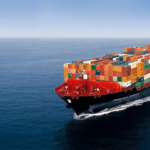







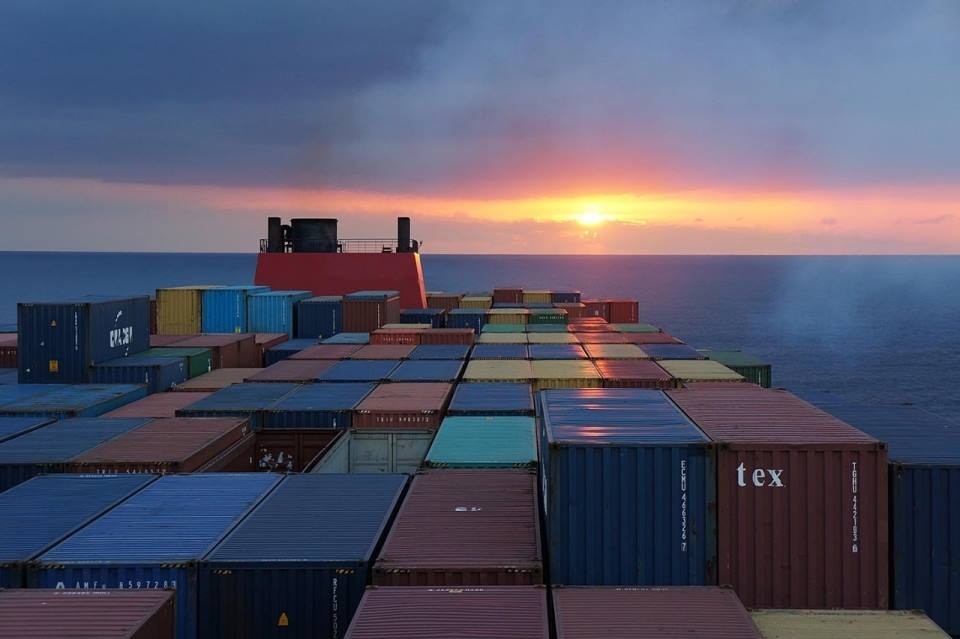
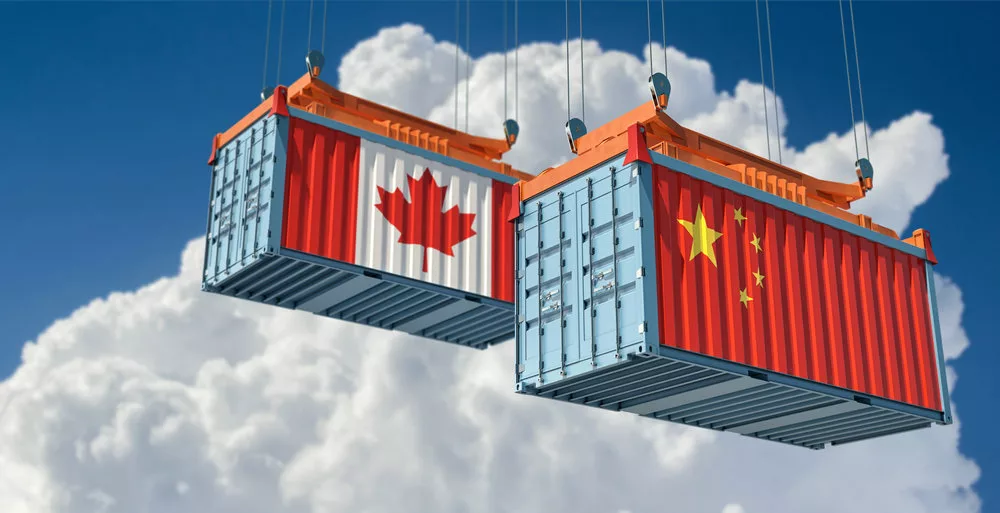
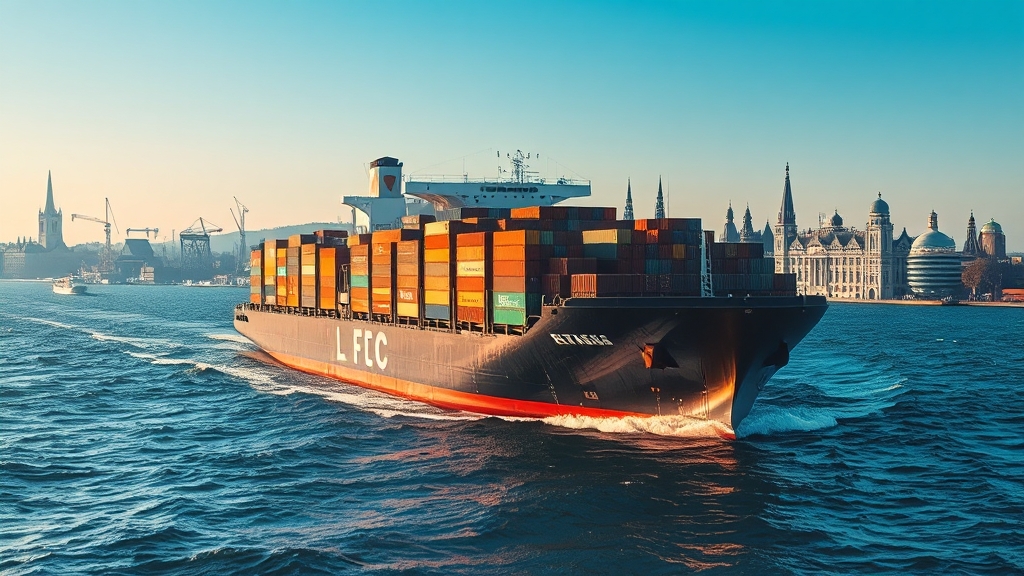

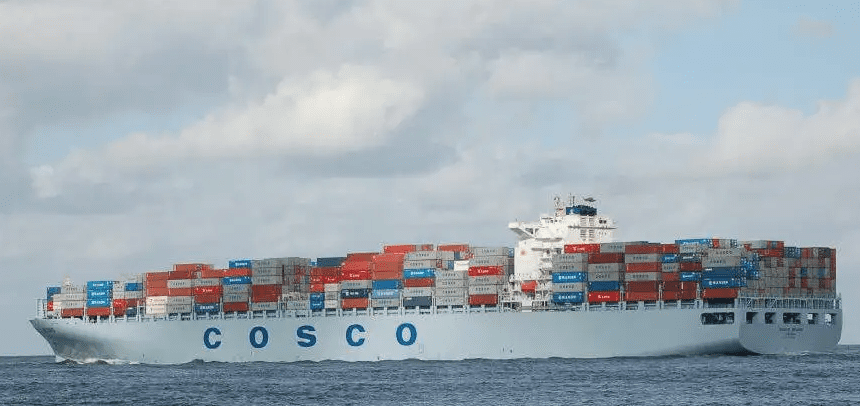





 Afrikaans
Afrikaans Shqip
Shqip አማርኛ
አማርኛ العربية
العربية Հայերեն
Հայերեն Azərbaycan dili
Azərbaycan dili Euskara
Euskara Беларуская мова
Беларуская мова বাংলা
বাংলা Bosanski
Bosanski Български
Български Català
Català Cebuano
Cebuano Chichewa
Chichewa 简体中文
简体中文 繁體中文
繁體中文 Corsu
Corsu Hrvatski
Hrvatski Čeština
Čeština Dansk
Dansk Nederlands
Nederlands English
English Esperanto
Esperanto Eesti
Eesti Filipino
Filipino Suomi
Suomi Français
Français Galego
Galego ქართული
ქართული Deutsch
Deutsch Ελληνικά
Ελληνικά Kreyol ayisyen
Kreyol ayisyen Harshen Hausa
Harshen Hausa Ōlelo Hawaiʻi
Ōlelo Hawaiʻi עִבְרִית
עִבְרִית हिन्दी
हिन्दी Hmong
Hmong Magyar
Magyar Íslenska
Íslenska Igbo
Igbo Bahasa Indonesia
Bahasa Indonesia Gaeilge
Gaeilge Italiano
Italiano 日本語
日本語 Basa Jawa
Basa Jawa ಕನ್ನಡ
ಕನ್ನಡ Қазақ тілі
Қазақ тілі ភាសាខ្មែរ
ភាសាខ្មែរ 한국어
한국어 كوردی
كوردی Кыргызча
Кыргызча ພາສາລາວ
ພາສາລາວ Latin
Latin Latviešu valoda
Latviešu valoda Lietuvių kalba
Lietuvių kalba Lëtzebuergesch
Lëtzebuergesch Македонски јазик
Македонски јазик Malagasy
Malagasy Bahasa Melayu
Bahasa Melayu മലയാളം
മലയാളം Maltese
Maltese Te Reo Māori
Te Reo Māori मराठी
मराठी Монгол
Монгол ဗမာစာ
ဗမာစာ नेपाली
नेपाली Norsk bokmål
Norsk bokmål پښتو
پښتو فارسی
فارسی Polski
Polski Português
Português ਪੰਜਾਬੀ
ਪੰਜਾਬੀ Română
Română Русский
Русский Samoan
Samoan Gàidhlig
Gàidhlig Српски језик
Српски језик Sesotho
Sesotho Shona
Shona سنڌي
سنڌي සිංහල
සිංහල Slovenčina
Slovenčina Slovenščina
Slovenščina Afsoomaali
Afsoomaali Español
Español Basa Sunda
Basa Sunda Kiswahili
Kiswahili Svenska
Svenska Тоҷикӣ
Тоҷикӣ தமிழ்
தமிழ் తెలుగు
తెలుగు ไทย
ไทย Türkçe
Türkçe Українська
Українська اردو
اردو O‘zbekcha
O‘zbekcha Tiếng Việt
Tiếng Việt Cymraeg
Cymraeg יידיש
יידיש Yorùbá
Yorùbá Zulu
Zulu